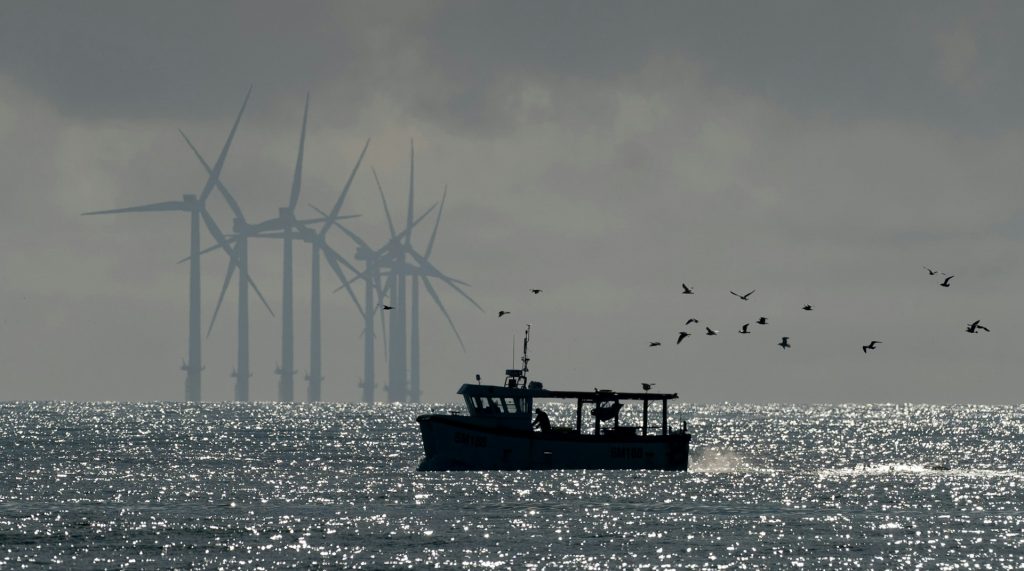Mitsubishi Corp. Poised to Withdraw from Major Offshore Wind Projects, Citing Soaring Costs

Mitsubishi Corporation is set to withdraw from three major offshore wind power projects off the coasts of Akita and Chiba prefectures, a landmark decision that deals a significant blow to Japan’s renewable energy ambitions. The move, prompted by soaring costs that have rendered the projects financially unviable, has sent ripples through the industry and raised concerns among local economies that were banking on the developments.
Market Reacts as Renova Shares Surge
In an immediate market response to the news, shares of renewable energy firm Renova Inc. (9519) surged, hitting a new high for the year. Investors are speculating that Renova, a prominent contender that was previously outbid for the project off the coast of Yurihonjo City in Akita, may now have a second chance to secure the contract in a future bidding round.
In a statement, Mitsubishi Corporation acknowledged the situation, commenting, “We are currently considering all possible options, including withdrawal, but no final decision has been made at this time.”
The Cost Factor: Why the Project Became Untenable
The core issue behind the withdrawal is cost. In 2021, a consortium led by Mitsubishi won the rights to develop the three sea zones by submitting exceptionally low bids for the price of electricity they would sell. Their proposed prices, ranging from ¥11 to ¥16 per kilowatt-hour, were more than 20% lower than their competitors, giving them a decisive edge. The original plan involved installing a total of 134 wind turbines with a combined output of approximately 1.7 million kilowatts, with operations scheduled to begin between 2028 and 2030.
However, since the bid was won, the business environment has deteriorated sharply. A combination of global inflation, a weakening yen, and surging material and labor costs has dramatically increased the project’s expenses. In February of this year, Mitsubishi announced it had booked a loss of ¥52.2 billion for the first three quarters of the fiscal year in connection with its offshore wind business. At the time, President Katsuya Nakanishi stated that the project was no longer profitable under the initial plan and that the company would conduct a “from-scratch review.” He added, “After exhausting all options, including recovery measures and consultations with stakeholders, we will deliver a result as quickly as possible.”
Local Economies in Akita and Chiba Face Setback
The decision has been met with disappointment in the local communities of Akita and Chiba, which had anticipated significant economic benefits and job creation. One representative from a Chiba economic organization lamented the lost opportunity, stating, “The potential economic impact would have been immeasurable. We urge the national government to select a new operator quickly.”
While expectations were high, some in Akita noted that progress had seemed slow after Mitsubishi won the bid, leading to skepticism about whether the project would proceed as planned. Officials in Chiba reportedly anticipated a potential withdrawal following President Nakanishi’s February comments. Having already invested in port upgrades and established maintenance companies, one local official emphasized the need for continuity: “We cannot afford to halt this initiative. We need another company to step up soon.”
Government Scrambles to Respond Amid Policy Questions
The government is now faced with reassessing its strategy for offshore wind, a cornerstone of its plan to expand renewable energy. Under current guidelines, if a selected operator decides to cancel a project, the government will confirm the reasons for withdrawal and consider holding a new public tender. The Ministry of Economy, Trade and Industry (METI) and the Ministry of Land, Infrastructure, Transport and Tourism (MLIT), which oversee the projects, are expected to revise the bidding rules to ensure the financial viability of future projects before re-opening the tender process.
As a result of terminating the project, the Mitsubishi-led consortium will forfeit its security deposit of approximately ¥20 billion to the government.
The situation has also sparked controversy. Earlier this year, the government began exploring a subsidy system that would be linked to market electricity prices for already awarded projects. This move drew criticism from competitors who suggested it was a “bailout” for Mitsubishi. To improve profitability for operators, the government is also considering extending the maximum sea area usage period from 30 years to a new standard of 40 years.
This high-profile withdrawal from one of Japan’s flagship offshore wind initiatives highlights the immense difficulty of balancing ambitious green energy goals with economic realities. The government may now be forced to fundamentally rethink its national renewable energy strategy to prevent similar setbacks in the future.





